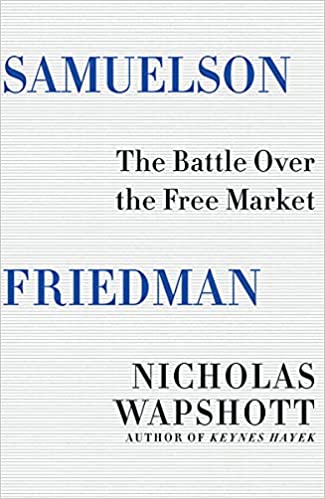
 |
 |
 |
 |
From the author of Keynes Hayek, the next great duel in the history of economics.
In 1966 two columnists joined Newsweek magazine. Their assignment: debate the world of business and economics. Paul Samuelson was a towering figure in Keynesian economics, which supported the management of the economy along lines prescribed by John Maynard Keynes’s General Theory. Milton Friedman, little known at that time outside of conservative academic circles, championed “monetarism” and insisted the Federal Reserve maintain tight control over the amount of money circulating in the economy.
In Samuelson Friedman, author and journalist Nicholas Wapshott brings narrative verve and puckish charm to the story of these two giants of modern economics, their braided lives and colossal intellectual battles.
Samuelson, a forbidding technical genius, grew up a child of relative privilege and went on to revolutionize macroeconomics. He wrote the best-selling economics textbook of all time, famously remarking "I don’t care who writes a nation’s laws - or crafts its advanced treatises - if I can write its economics textbooks." His friend and adversary for decades, Milton Friedman, studied the Great Depression and with Anna Schwartz wrote the seminal books The Great Contraction and A Monetary History of the United States. Like Friedrich Hayek before him, Friedman found fortune writing a treatise, Capitalism and Freedom, that yoked free markets and libertarian politics in a potent argument that remains a lodestar for economic conservatives today.
In Wapshott’s nimble hands, Samuelson and Friedman’s decades-long argument over how - or whether - to manage the economy becomes a window onto one of the longest periods of economic turmoil in the United States. As the soaring economy of the 1950s gave way to decades stalked by declining prosperity and "stagflation," it was a time when the theory and practice of economics became the preoccupation of politicians and the focus of national debate. It is an argument that continues today.
 |
 |